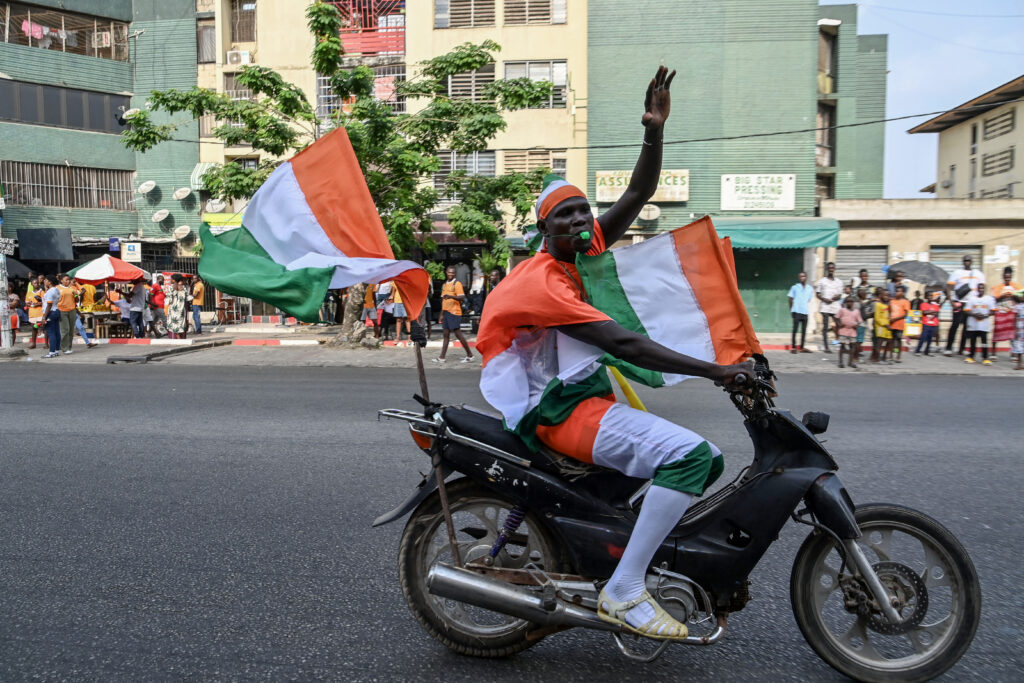An investigative journalist, a former city official, a sociology student and a pastor have all joined the race to become Ivory Coast’s next president.As first-time candidates, they attract curiosity while out and about campaigning against President Alassane Ouattara, who is seeking a fourth term, as well as veteran opposition figures.With only three months to go before the October 25 polls, candidates must raise a 50 million CFA franc ($87,000, 76,000 euros) deposit, while a sponsorship system requires them to obtain one percent of the vote from half of the country’s 31 regions, the capital Yamoussoukro and economic hub Abidjan. Only four of 44 candidates managed to be officially approved to stand in 2020.Here are four of the political newcomers:- Tiemoko Assale, investigative journalist -For nearly 20 years, Tiemoko Assale has exposed corruption, setting up one of the few independent media outlets in Ivory Coast, l’Elephant dechaine (The Unchained Elephant).But, “all the investigations we have done, sometimes even risking our lives… only produced emotion during the reading”, he told AFP.He was referring to a year he spent in jail in 2008 over the publication of an article and an attempt made on his life.”I decided to go into politics because I was a bit disappointed by the impact my investigations had on the powers that be,” he added.Assale, 49, a lawyer by training, has been deputy mayor of the town of Tiassale since 2018 and continues his journalistic work while he prepares his candidacy.- Vincent Toh-Bi Irie, ex-city official -Like Assale, Vincent Toh-Bi Irie, 55, has worn many hats as a former political consultant, chief of staff in the interior ministry, top city official in Abidjan and head of an NGO for preventing electoral disputes.”I have all the perspectives!,” he said.Although he is allied with Assale, both are running as individual candidates.From everything he has done, what he mainly takes away is the need to “humanise public policies”, he said, citing last year’s razing of homes in Abidjan under a drive to tackle squalor.Abidjan “must develop” but “everything lies in the method”, he said.He is counting on citizen support both financially and on the ground. “We operate with a lot of volunteers, who are hungry for change,” he said.- Jean-Francois Kouassi, face of the young -Three quarters of Ivorians are under 35, the minimum age for running for president.”Doesn’t this section of the population have the right to have a candidate?” asks Jean-Francois Kouassi, 35, in a video on social media.”Young people are underrepresented in institutions and decision-making bodies and the political scene has been occupied by dinosaurs for decades,” the agricultural entrepreneur and sociology student told AFP. Ouattara is 83 years old and has been in power since 2011, while his old rival 80-year-old Laurent Gbagbo has been ruled ineligible to run.- Wilfried Zahui, a pastor -Wilfried Zahui, a pastor for nearly 20 years, encourages his congregants to forgive and the Ivorian state to grant amnesty to reconcile a country riven by deadly post-election violence in late 2010 and early 2011 that pitted Gbagbo’s camp against Ouattara’s supporters.Gbagbo was pardoned after a conviction linked to the crisis but was not granted amnesty, which prevents him enjoying his civil rights.Zahui also calls for compensation for victims of the crisis, such as the displaced or wounded.He believes the electoral system poses no obstacles to newcomers in the race. “We’re not talking about city hall, we are talking about the nation. It’s designed to welcome serious candidates,” he said.
